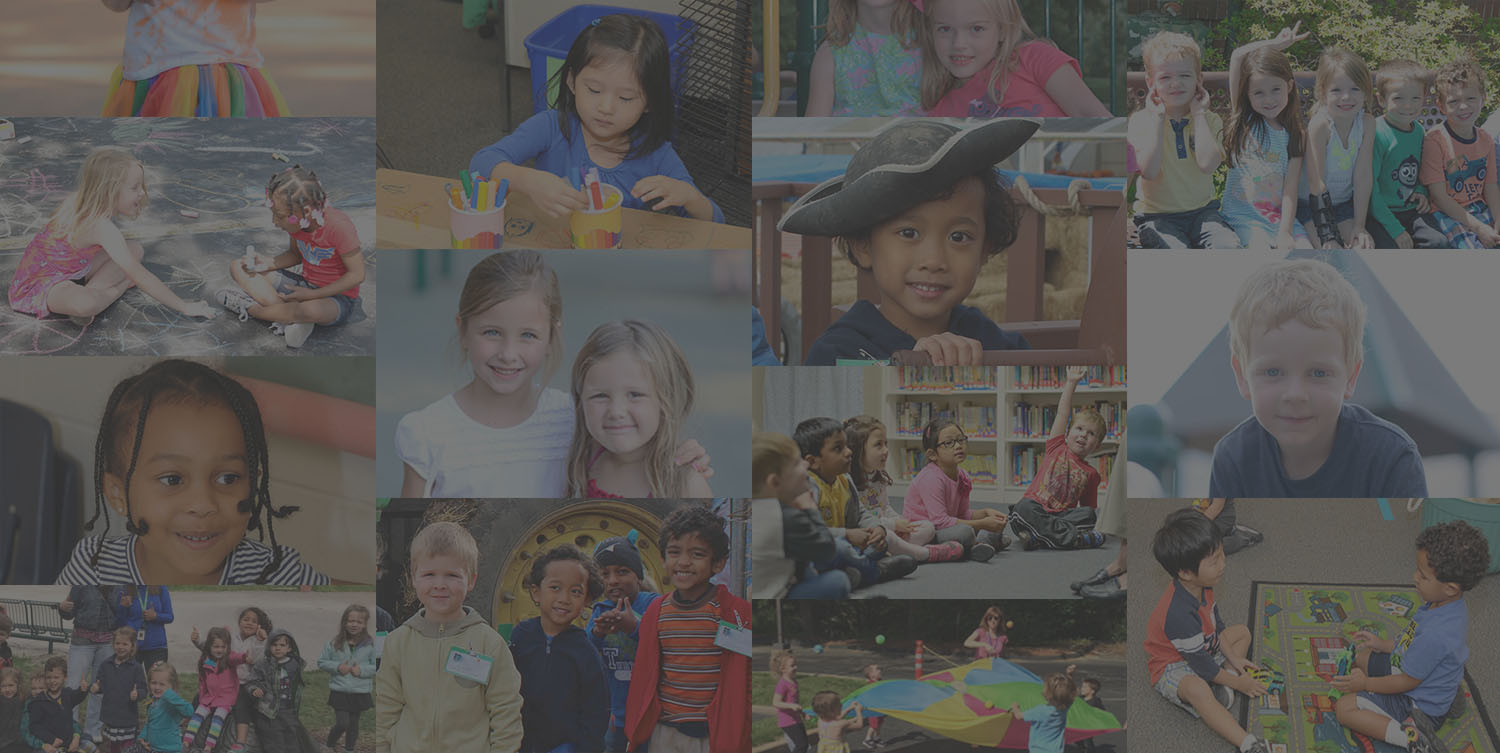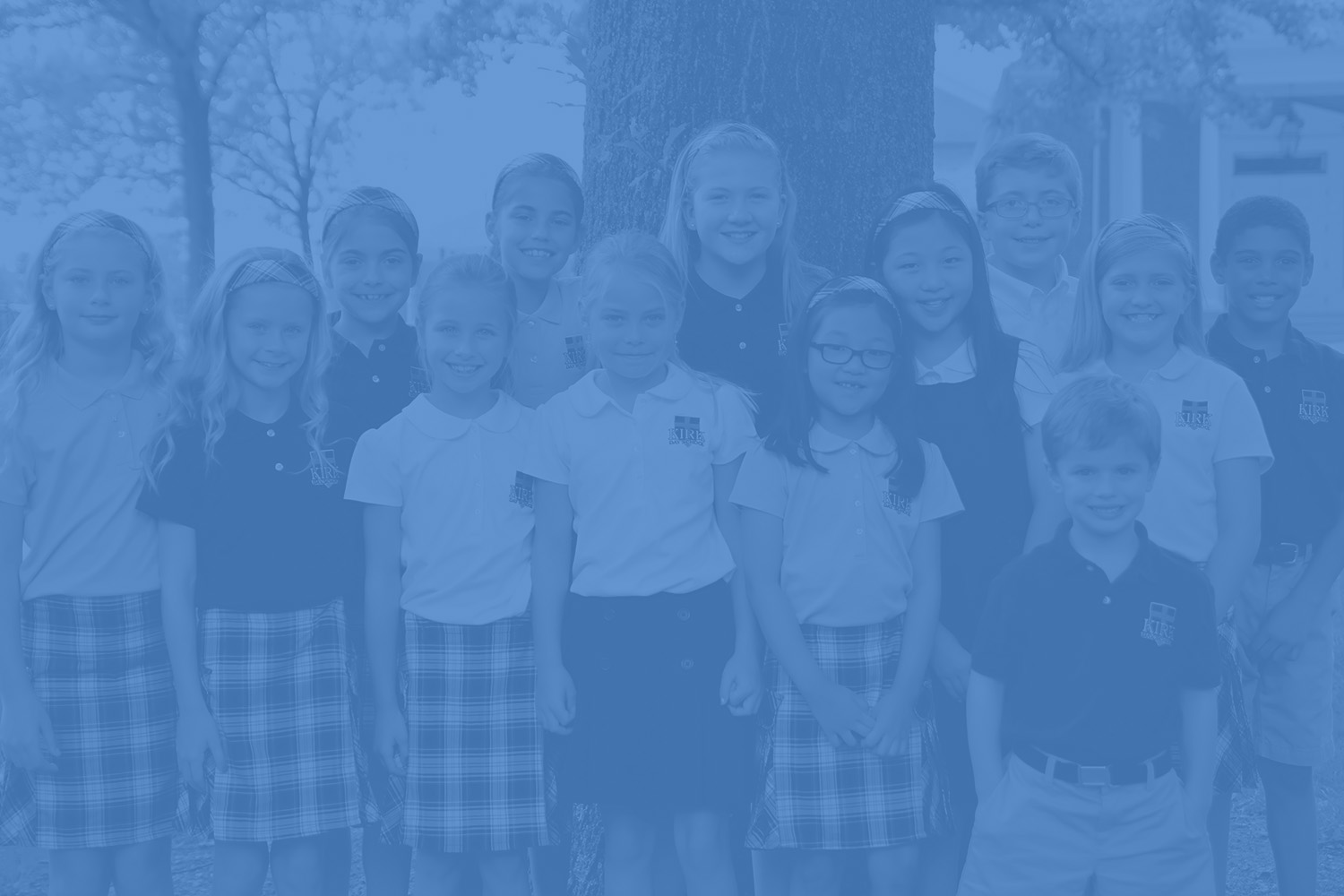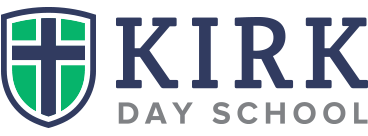
We believe each child is a unique creation of God and is valuable in His sight.
We provide a loving, caring, and nurturing environment that fosters a warm and welcoming atmosphere for learning. Our program is based on meeting all the child’s individual needs: spiritual, social, physical, emotional, and intellectual.
The activities provided during the day are designed to meet specific goals in each area of development through our carefully selected Early Childhood Curriculum. While play is an important component to child development, students will also engage in purposeful learning activities to meet distinct educational objectives. The curriculum is further enriched through the co-curricular classes of Spanish, Music, Physical Education, Library Literature Enrichment, and Chapel. Kindergarteners will add Art to their co-curricular schedule.
“Their lives will be enriched, their horizons broadened, and their minds and bodies challenged.”

Preschool
Students must be 3 years old by August 1st
Student/teacher ratio is around 8:1
Full Day and Half-Day Morning Options:
3-day class meets on Monday, Wednesday, and Friday
5-day class meets Monday - Friday
Pre-Kindergarten
Students must be 4 years old by August 1st
Student/teacher ratio is around 8:1
Full Day and Half-Day Morning Options:
3-day class meets on Monday, Wednesday, and Friday
5-day class meets Monday - Friday
Kindergarten
Students must be five years old by August 1
Student/teacher ratio is around 15:1
Full Day and Half-Day Morning Options:
5-day class meets Monday - Friday
Preschool
Students must be 3 years old by August 1st. The student/teacher ratio is around 6:1.
Both morning half-day and full-day options are available to students who enroll in either the 3-day class or the 5-day class.
3-day class meets on Monday, Wednesday, and Friday
5-day class meets Monday through Friday
Bible
A study of the Bible is told using Jesus Calling Bible Storybook by Sarah Young. Children are taught Bible memory using Steve Green’s Hide ‘m in Your Heart CD’s Volumes 1 & 2.
Reading
Pre-reading skills are taught. Students are introduced to letter recognition, letter sounds, rhyming words, and opposites. The students are read to during the school day, sing songs, and learn finger plays.
Handwriting
Students engage in many fine motor building activities, enabling them to begin working on proper pencil grip, tracing their name, and cutting.
Mathematics
Students learn basic shapes and to recognize numbers 1-9. Students work with numbers to understand what numbers 1-9 mean and practice counting using one to one correspondence. Preschool also learns what a calendar means.
History
Topics covered include Native Americans, Pilgrims, Creation, The birth of Christ, Easter, and major holidays.
Skills
Preschool students learn how to manage their own belongings, how to sort and clean up toys, and home living skills such as washing dishes. Throughout the day students are discipled in how to function well in a group setting. They are taught how to understand their emotions, how to constructively express emotions, how to function well in a group, and how to mend peer conflicts.
Co-Curricular Subjects
Students participate in Music, Spanish, Physical Education and Library.
PreKindergarten
Students must be 4 years old by August 1st. The student/teacher ratio is around 8:1.
Both morning half-day and full-day options are available to students who enroll in either the 3-day class or the 5-day class.
3-day class meets on Monday, Wednesday, and Friday
5-day class meets Monday through Friday
Bible
A study of biblical accounts from Creation through the Early Church is presented using the Walking with God and His People curriculum (Christian Schools International). Weekly memorization and recitation of Bible verses are highlighted during the weekly chapel worship.
Reading
Early pre-reading skills are developed through systematic instruction in letter recognition, letter sounds, rhyming, syllables, and sight words using the Open Court Reading program (McGraw-Hill).
Handwriting
Proper pencil grip and learning to start at a the top and go left to right are emphasized as students practice writing capital letters and numbers using the Handwriting Without Tears curriculum.
Mathematics
Students learn skills in math such as shapes, numbers, addition and subtraction, measurement, graphs, and patterns using the Big Math for Little People curriculum.
Handwriting
Use correct manuscript lettering for words and sentences; form lower and uppercase cursive letters properly using Zaner-Bloser Handwriting.
History
Students study Bible stories including Christmas and Easter, Native Americans, Pilgrims, Veteran’s Day, and maps.
Science
Students are introduced to life cycles, magnets, seasons, and weather.
Co-curricular Subjects
Students participate in Music, Spanish, Physical Education and Library.
Kindergarten
Students must be 5 by August 1 and have already completed a 4-year old PreKindergarten Program. The student/teacher ratio is around 10:1
Kindergarten is a 5 day program meeting Monday through Friday. Both half-day and full-day options are available.
Bible
A study of biblical accounts from Creation through Jesus’ Ascension is presented using the Walking with God and His People curriculum (Christian Schools International). Children are taught how to apply the biblical principles of peacemaking as presented in the Young Peacemaker program (Peacemaker Ministries) program. Weekly memorization and recitation of Bible verses are highlighted during the weekly chapel worship.
Reading
Early reading skills are developed through systematic instruction in phonics, beginning fluency, sight words, vocabulary, and comprehension skills. Explicit phonemic awareness skills are taught through the Heggerty Phonemic Awareness curriculum.
Handwriting
Students are taught proper pencil grip and writing posture, along with correct formation of the manuscript letters and numerals 0 – 9 using Zaner-Bloser Handwriting.
Mathematics
Students learn skills in math such as classification, patterns, sequencing, numbers & number sense, money, understanding beginning computation, non-standard measurement, geometry, and problem solving strategies.
History
Students study Bible stories, Geography, Columbus, Pilgrims & Native Americans, Thanksgiving, Christmas, Easter, Black History, MLK Jr., and the Mt. Rushmore Presidents.
Science
Students use the Harcourt Science curriculum to study the following topics: Life Science (animals, plants, humans), Earth Science (land, rocks, water, sky, weather), and Physical Science (matter, light/shadows, magnets).
Co-curricular Subjects
Students participate in weekly classes in Art, Music, Spanish, Physical Education and Library.
Ready to learn more?
We'd love to give you a campus tour or a quick look into our classrooms.






